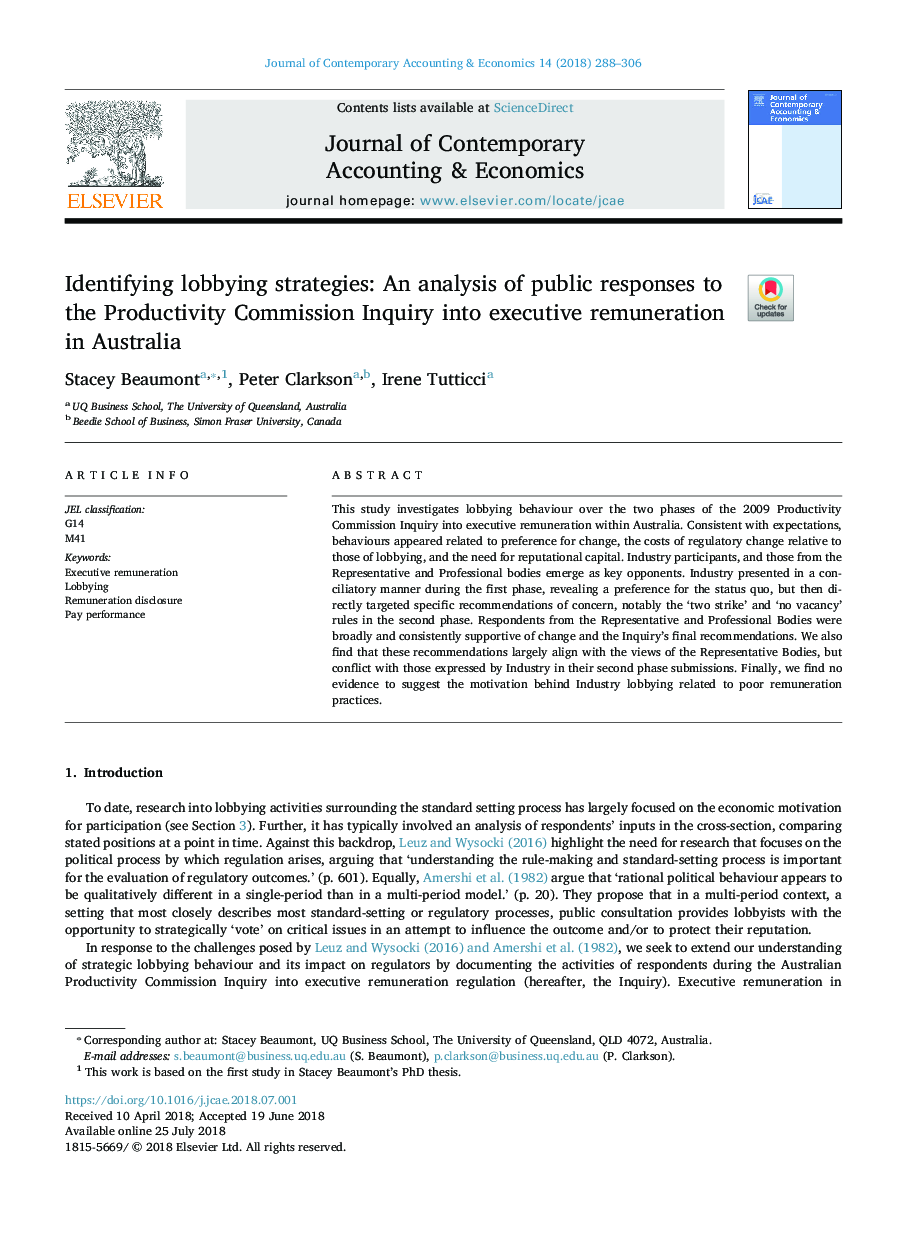| Article ID | Journal | Published Year | Pages | File Type |
|---|---|---|---|---|
| 7356969 | Journal of Contemporary Accounting & Economics | 2018 | 19 Pages |
Abstract
This study investigates lobbying behaviour over the two phases of the 2009 Productivity Commission Inquiry into executive remuneration within Australia. Consistent with expectations, behaviours appeared related to preference for change, the costs of regulatory change relative to those of lobbying, and the need for reputational capital. Industry participants, and those from the Representative and Professional bodies emerge as key opponents. Industry presented in a conciliatory manner during the first phase, revealing a preference for the status quo, but then directly targeted specific recommendations of concern, notably the 'two strike' and 'no vacancy' rules in the second phase. Respondents from the Representative and Professional Bodies were broadly and consistently supportive of change and the Inquiry's final recommendations. We also find that these recommendations largely align with the views of the Representative Bodies, but conflict with those expressed by Industry in their second phase submissions. Finally, we find no evidence to suggest the motivation behind Industry lobbying related to poor remuneration practices.
Keywords
Related Topics
Social Sciences and Humanities
Business, Management and Accounting
Business, Management and Accounting (General)
Authors
Stacey Beaumont, Peter Clarkson, Irene Tutticci,
